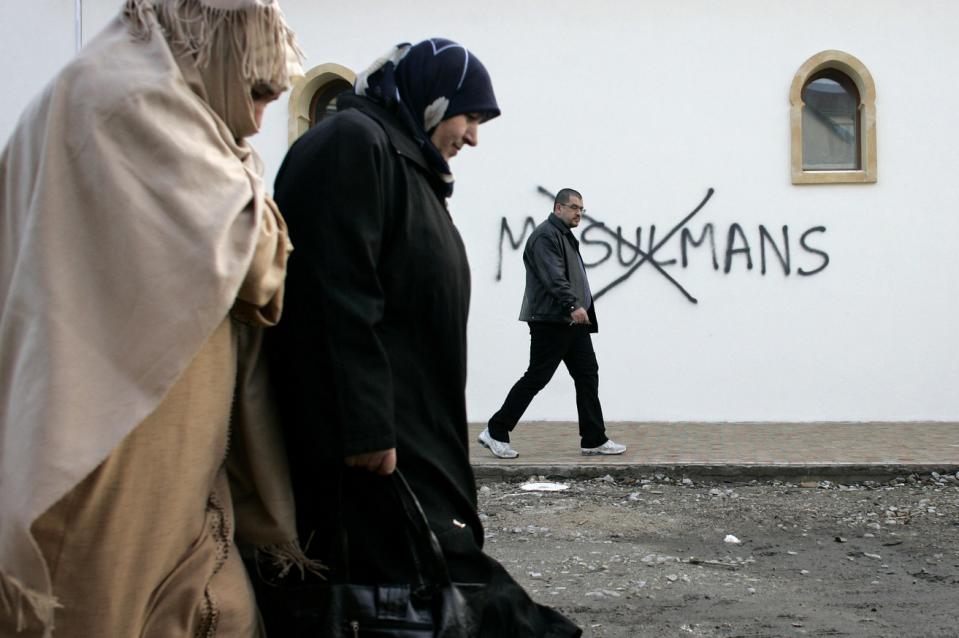Radical ideological groups are a distortion of Islam. Moderate Muslims around the world have tirelessly pushed this argument in response to fundamentalist terrorists claiming to act in the name of the religion. Simultaneously, European nations have taken aggressive action towards limiting potential danger from Islamic extremism, measures which, in part, are catalyzed by rising xenophobic attitudes. European leaders first put these measures into place as a reaction to different attacks around the continent, including the 7/7/05 attacks in London and the 2004 bombings in Madrid. So-called “Muslims” that commit acts of terrorism like the Charlie Hebdo attacks serve as obstacles for the greater majority of the Muslim community working to promote a positive image of the religion. In addition to the deterioration of Islam’s global image, France is gradually becoming less tolerant of its Muslim population and more inclined to take biased actions in the name of national security despite breaches of personal rights.
Muslims around the globe are paying the consequences for the radical actions of two murderers; at the same time, European nations that were once distrustful of Islam are now further unwelcoming and paranoid. The attack on Charlie Hebdo was not only a horror to European people and a tragedy to the cartoon publication, but also has proven to be a larger-scale detriment to Muslims.
In response to the Charlie Hebdo attacks, there has been a rush of encouragement for freedom of expression. Global supporters of Charlie Hebdo have rallied behind the call “Je suis Charlie,” meaning “I am Charlie.” In 2004, however, France instated a ban against “‘ostensibly’ religious signs [such] as Islamic head scarves, Christian crosses that are too large in size and Jewish skullcaps…” After 6 years, this ban evolved into a policy against individuals dawning the Burqa, a piece of religious apparel worn typically by Muslim women for modesty. Ironically, many supported the freedom of the Charlie Hebdo publication to mock religious figures but do not support the freedom to dawn one’s religious apparel. Such a dichotomy implies that freedom of expression in Europe is valued when ridiculing a religion and its revered figures, but not when followers choose to represent their faith through their apparel.
Nonetheless, such legislation shows that parts of French society are generally intolerant of Muslims. To reestablish a sense of national security, the French government deployed between 5,000 and 10,000 troops to secure areas potentially at risk of further attack. The French placed troops at both schools and national monuments, but also at mosques and synagogues. The murder of the Charlie Hebdo staff has fueled the fire and allowed for the justification of skepticism and intolerance of Islam.
The actions of the Kouachi brothers not only have contributed to Islam’s poor image in the eyes of European nations, but also have negatively impacted moderate Muslims who condemn such terroristic acts. Within a week of the attack, France experienced over 50 new cases of violence against Muslims. 60 percent of these cases were threats or verbal assault to individuals, and 40 percent consisted of shootings including use of explosives against Islamic institutions.
While the Charlie Hebdo attack was intended to combat the publication’s satirical cartoons depicting the prophet Muhammad, it actually was counterproductive; the attack provoked further action from the remaining Hebdo staff. The publication increased their print circulation of their cartoons from 60,000 to nearly 5 million. Not only were the murders in Paris counterproductive, but they also exacerbated the conflict between mainstream Europe and Muslim communities. While initially the controversy was related to publication in France, the situation has expanded to many more nations. It has generated more tension as some citizens of predominately Muslim nations and areas respond to Charlie Hebdo’s cartoons. Rallies and protests have erupted across Chechnya, Pakistan, Gaza, Jordan, Algeria, and Niger.
The actions of the Kaouchi brothers stained the image of many Muslims across the world. Their violence against Charlie Hebdo created an even more hostile environment within European nations for Muslims; they have generated more animosity against people of their own faith. While they believed that they acted in defense of the prophet Muhammad, the Kaouchi brothers burdened the rest of the Muslim world with more skepticism, hatred, and ignorance. To exacerbate the situation, France’s defense mechanism against extremism has been one of hypocrisy and intolerance. Even as a developed and diverse nation, the French government has demonstrated its partiality regarding freedom of expression. The murders of the Charlie Hebdo staff were tragic and uncalled for, yet it seems that moderate Muslims who are now burdened with the repercussions of ignorance in action are also collateral.
